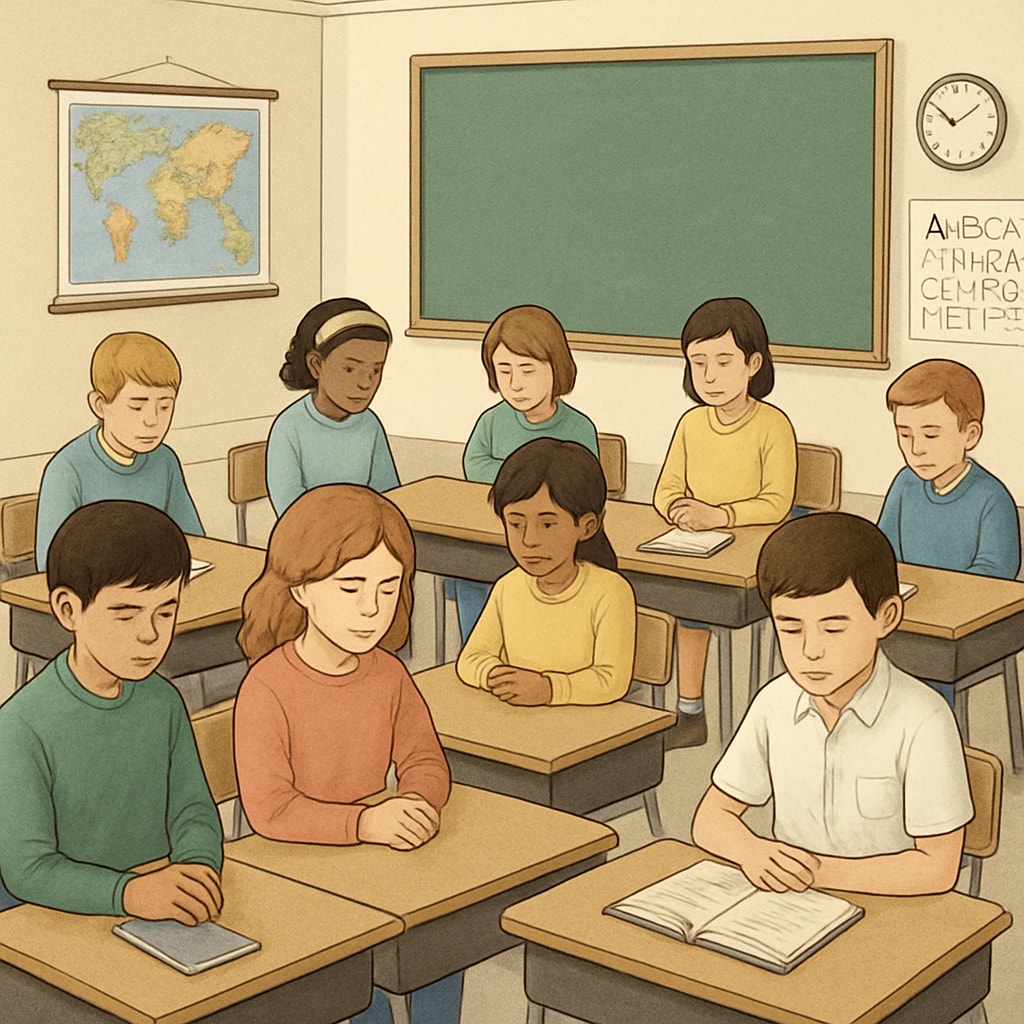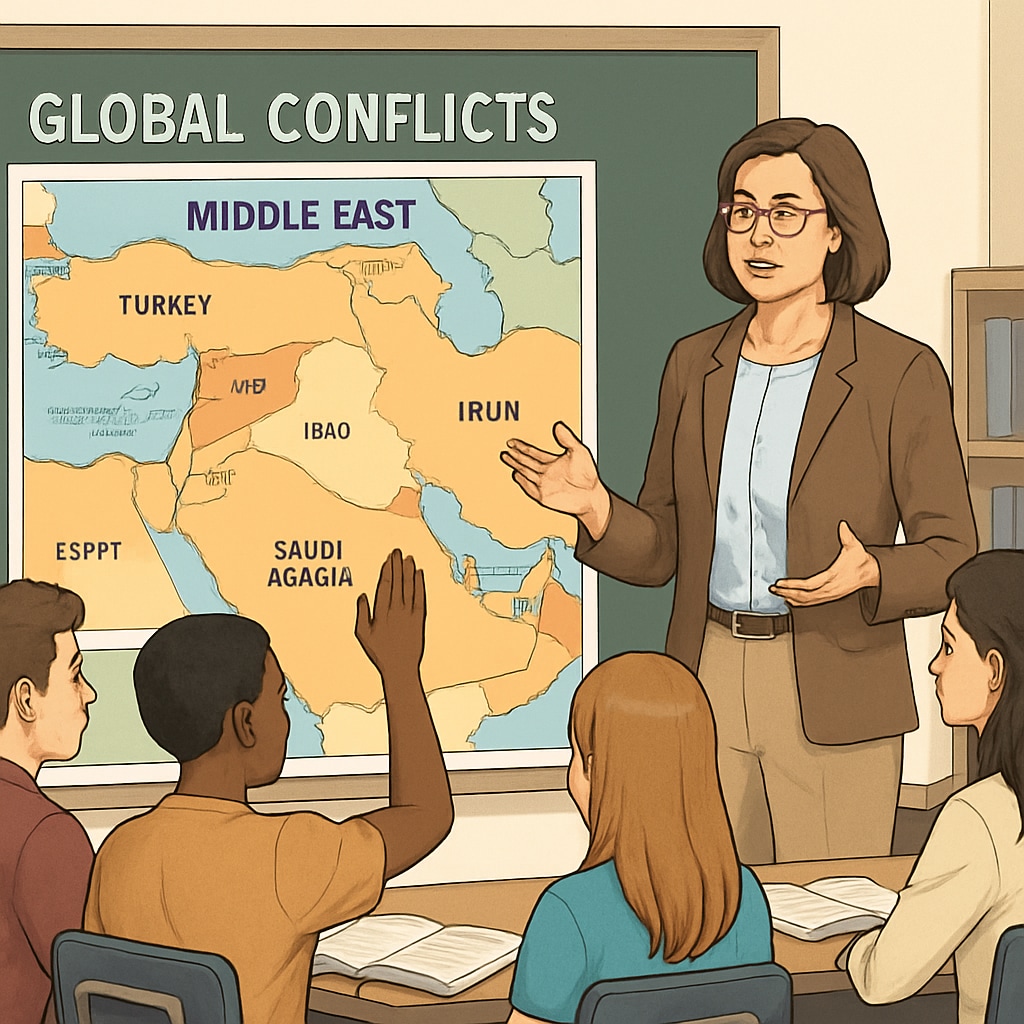The recent decision by some K12 schools to transform Gaza-specific mourning events into a generalized commemoration for “global war victims” has sparked widespread debate. This approach, designed to avoid controversy, raises questions about political avoidance in education, the role of schools in fostering global awareness, and the impact of such generalizations on students’ understanding of specific crises. By exploring the motivations behind this decision and its implications, we can better understand the balance schools must strike between neutrality and truth.
The Generalization of Gaza Mourning: A Political Safe Zone?
One of the most debated outcomes of this decision is its apparent attempt to sidestep political controversy. By broadening the focus from Gaza to all global war victims, schools aim to present an apolitical stance. Advocates argue that this approach prevents alienating students or parents with differing political views, creating a “neutral” educational environment. However, critics contend that such generalization dilutes the specificity of the Gaza conflict and avoids addressing its root causes, ultimately failing to engage students with the realities of the situation.
For example, a school’s statement declaring a moment of silence for “all victims of war” may seem inclusive, but it can also obscure the unique context of Gaza’s suffering. As a result, students might miss the opportunity to critically engage with the historical, social, and political dimensions of the conflict. Instead of fostering understanding, this approach risks trivializing the gravity of individual crises.

Educational Dilemmas and the Politics of Avoidance
Education inherently involves making choices about what to teach and how to present it. When schools opt for generalized mourning, they may be prioritizing the avoidance of controversy over the cultivation of critical thinking. This raises the question: Should schools strive to remain apolitical, or should they embrace the responsibility of addressing difficult topics like Gaza?
Many educators feel trapped between these two extremes. On the one hand, discussing a politically charged issue like Gaza might lead to accusations of bias or indoctrination. On the other hand, avoiding the topic entirely—or diluting it through generalization—risks producing a generation of students who lack the tools to critically analyze global conflicts.
It is worth noting the role of parental influence in shaping these decisions. In diverse school communities, parents often hold differing perspectives on international events. This diversity can create pressure on schools to adopt a “broad and neutral” approach, thereby minimizing potential backlash. However, this strategy comes at a cost: the loss of specificity, depth, and the opportunity to teach students about the complexities of individual conflicts.
The Impact on Students’ Political Awareness
The generalization of mourning for Gaza into a broader acknowledgment of global conflict victims has significant implications for students’ political awareness. By avoiding specificity, schools may inadvertently teach students to view all conflicts as interchangeable. This oversimplification undermines the development of critical thinking skills and the ability to contextualize global events.
For example, if students are not encouraged to explore the unique historical and political dynamics of Gaza, they may struggle to differentiate between the causes and consequences of various global conflicts. This lack of nuance can lead to apathy, as students perceive these issues as too complex or distant to engage with meaningfully.
Moreover, the generalization approach risks alienating students who may have personal or familial connections to the Gaza conflict. For these students, the lack of acknowledgment for their lived experiences can feel dismissive, further complicating their relationship with their educational institutions.

A Call for Courage and Honesty in Crisis Education
To navigate these challenges, educators must find the courage to address specific crises with honesty and depth. While neutrality is important, it should not come at the expense of truth. Schools have a responsibility to equip students with the knowledge and critical thinking skills necessary to engage with the world’s most pressing issues.
One potential solution is to adopt a balanced approach that acknowledges the specificity of crises like Gaza while also situating them within the broader context of global conflicts. For example, a moment of silence for Gaza could be accompanied by a classroom discussion on the broader themes of war, peace, and human rights. This dual approach allows schools to maintain inclusivity while fostering a deeper understanding of complex issues.
Additionally, educators can utilize resources from reputable organizations to present unbiased and factual information. For example, institutions like UNICEF and Amnesty International offer valuable materials for teaching about global conflicts in an age-appropriate manner. By leveraging these resources, schools can create a learning environment that encourages inquiry and empathy without alienating any segment of their community.
Conclusion: Striking the Right Balance
The decision to generalize Gaza mourning into a broader commemoration for global war victims reflects the complex challenges schools face in today’s polarized world. While the intention to avoid controversy is understandable, this approach risks diminishing students’ ability to critically engage with specific crises. By embracing courage and honesty, educators can transform these moments into opportunities for meaningful learning and growth.
Ultimately, education is not just about imparting knowledge; it is about shaping informed and empathetic individuals who can navigate the complexities of the modern world. Schools must rise to the challenge of addressing difficult topics with integrity, ensuring that students are prepared to become thoughtful and engaged global citizens.


